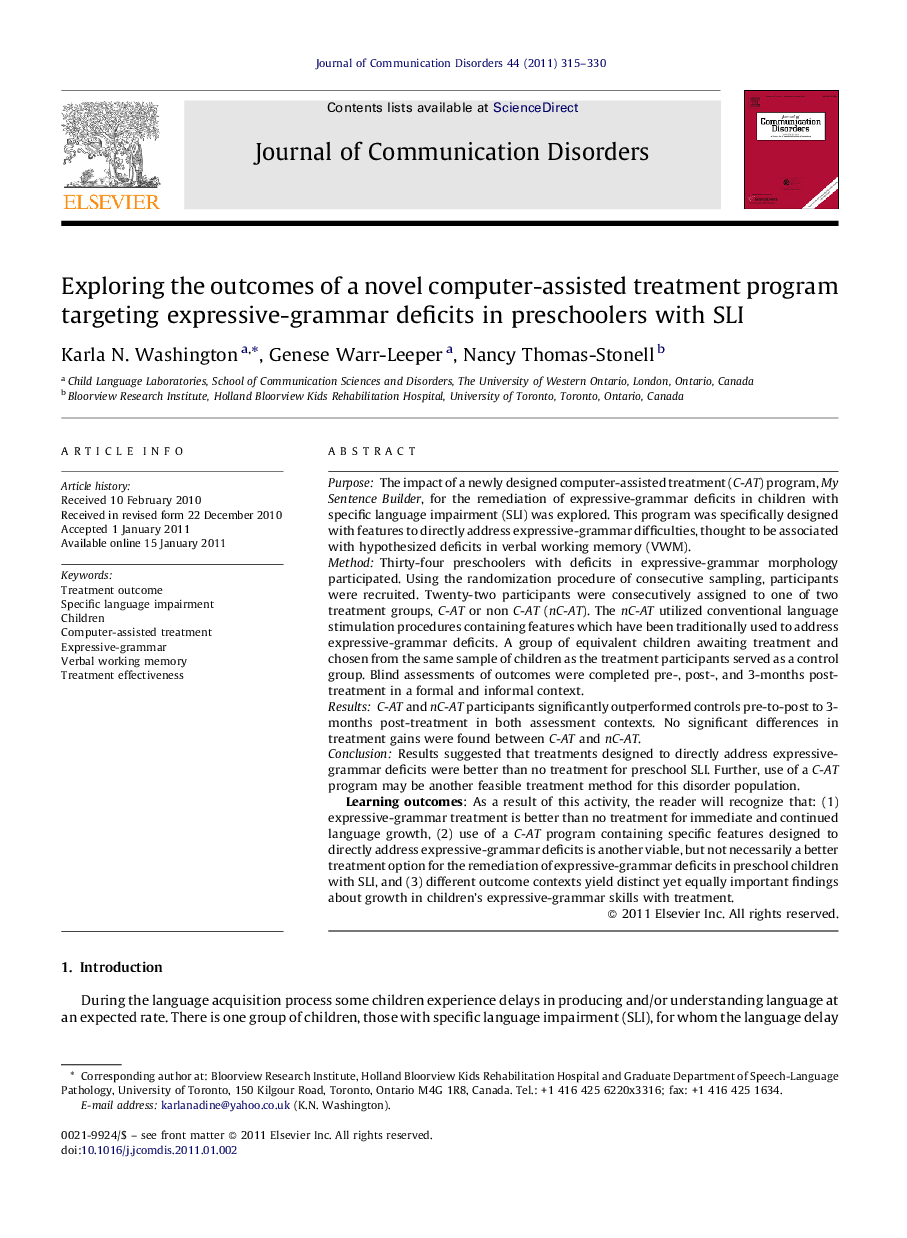| Article ID | Journal | Published Year | Pages | File Type |
|---|---|---|---|---|
| 910930 | Journal of Communication Disorders | 2011 | 16 Pages |
PurposeThe impact of a newly designed computer-assisted treatment (C-AT) program, My Sentence Builder, for the remediation of expressive-grammar deficits in children with specific language impairment (SLI) was explored. This program was specifically designed with features to directly address expressive-grammar difficulties, thought to be associated with hypothesized deficits in verbal working memory (VWM).MethodThirty-four preschoolers with deficits in expressive-grammar morphology participated. Using the randomization procedure of consecutive sampling, participants were recruited. Twenty-two participants were consecutively assigned to one of two treatment groups, C-AT or non C-AT (nC-AT). The nC-AT utilized conventional language stimulation procedures containing features which have been traditionally used to address expressive-grammar deficits. A group of equivalent children awaiting treatment and chosen from the same sample of children as the treatment participants served as a control group. Blind assessments of outcomes were completed pre-, post-, and 3-months post-treatment in a formal and informal context.ResultsC-AT and nC-AT participants significantly outperformed controls pre-to-post to 3-months post-treatment in both assessment contexts. No significant differences in treatment gains were found between C-AT and nC-AT.ConclusionResults suggested that treatments designed to directly address expressive-grammar deficits were better than no treatment for preschool SLI. Further, use of a C-AT program may be another feasible treatment method for this disorder population.Learning outcomes: As a result of this activity, the reader will recognize that: (1) expressive-grammar treatment is better than no treatment for immediate and continued language growth, (2) use of a C-AT program containing specific features designed to directly address expressive-grammar deficits is another viable, but not necessarily a better treatment option for the remediation of expressive-grammar deficits in preschool children with SLI, and (3) different outcome contexts yield distinct yet equally important findings about growth in children's expressive-grammar skills with treatment.
Research highlights► Expressive-grammar treatment is better than no treatment for preschool SLI. ► Computer-assisted treatment is as effective as non computer-assisted treatment. ► Computer-assisted treatment is another feasible treatment option for preschool SLI. ► Treatment led to gains in formal and informal contexts beyond targeted structures.
